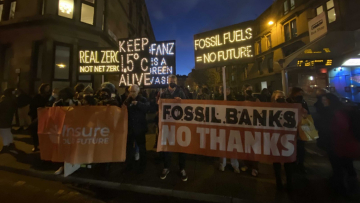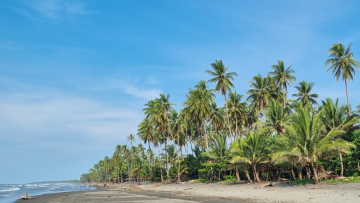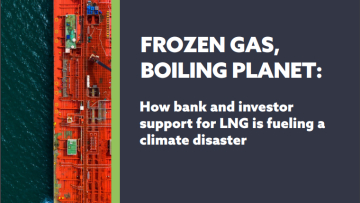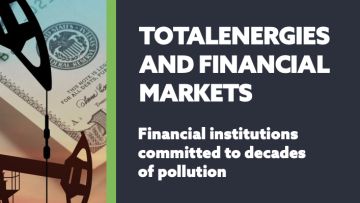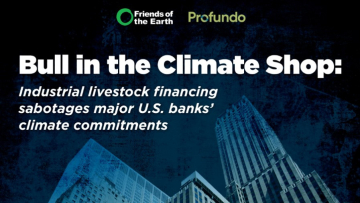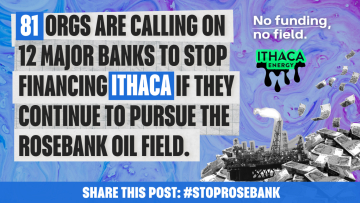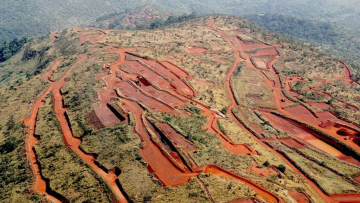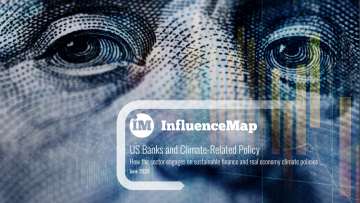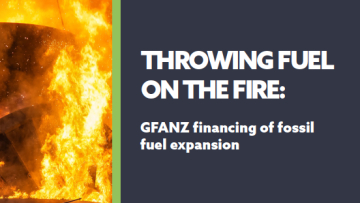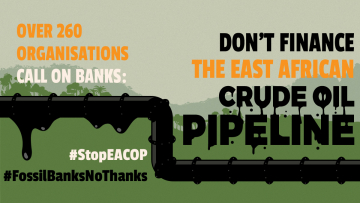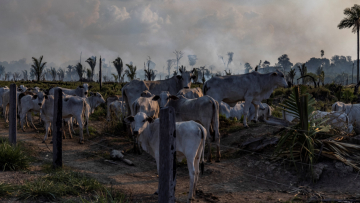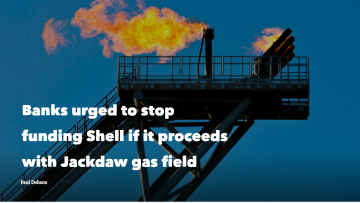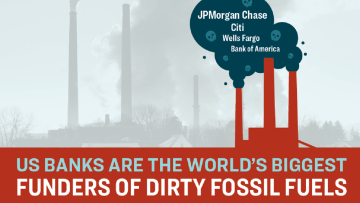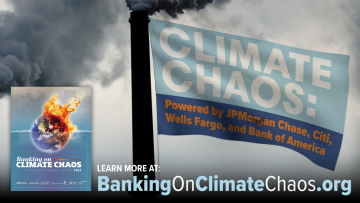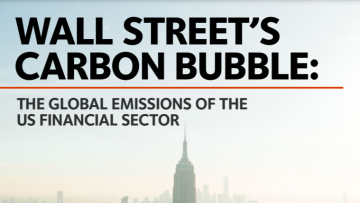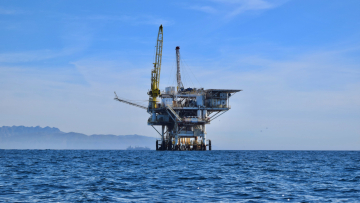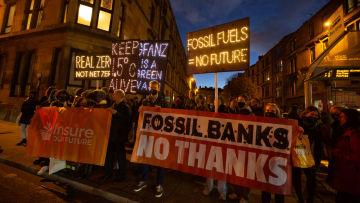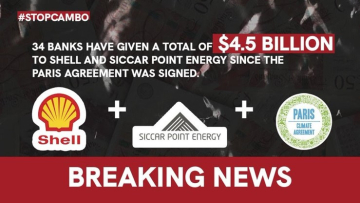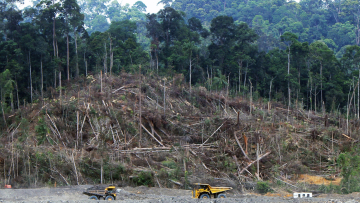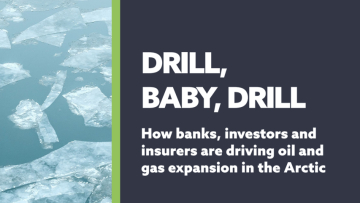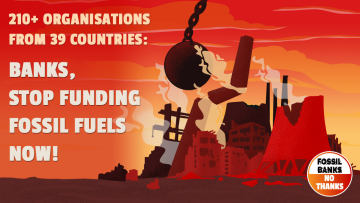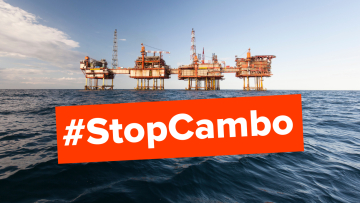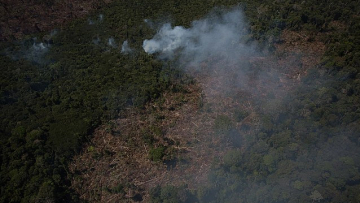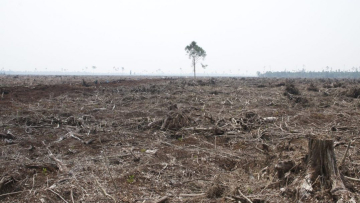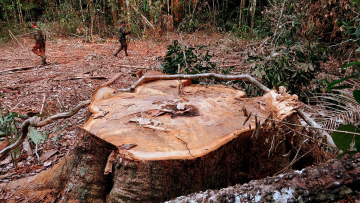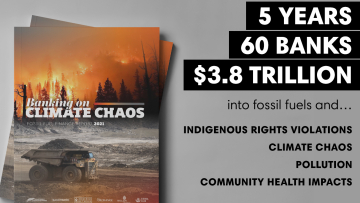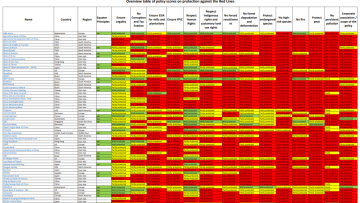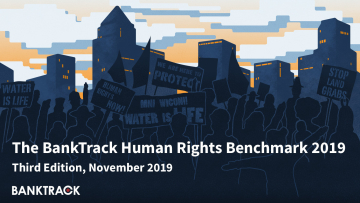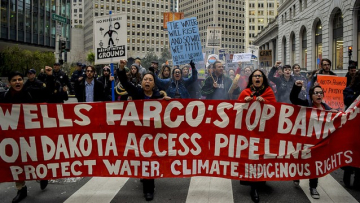
Active
This profile is actively maintained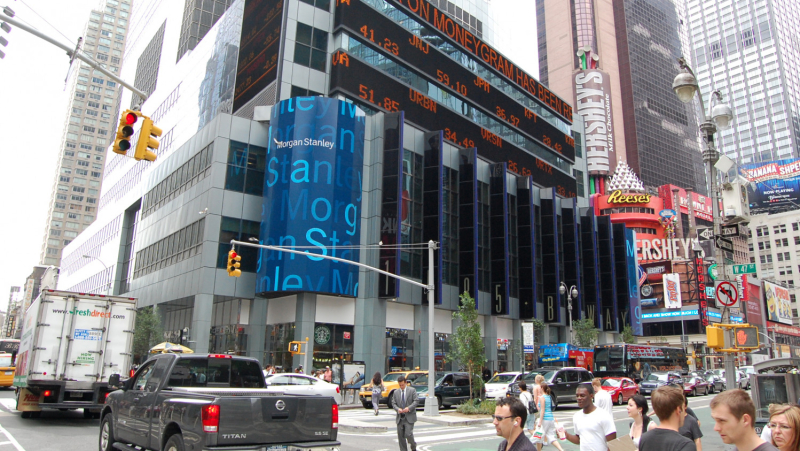
Active
This profile is actively maintained| Website | http://www.morganstanley.com/ |
| Headquarters |
1585 Broadway
NY 10036 New York
United States
|
| CEO/chair |
Ted Pick Chairman & CEO |
| Supervisor | |
| Ownership |
listed on NYSE
Morgan Stanley's largest shareholder is Japanese bank Mitsubishi UFJ Financial Group (23.62%, as of Dec 8 2025). Morgan Stanley's complete shareholder structure can be accessed here. |
Morgan Stanley is an American investment bank, founded in 1935. With offices in more than 41 countries, the bank's clients include corporations, governments, institutions, and individuals. Morgan Stanley's main activities are: institutional securities, wealth management and investment management.
Morgan Stanley's most important sustainability commitments can be found at the website sections listed below.
Links
Morgan Stanley is linked to a number of companies and projects that BankTrack considers controversial (so called Dodgy Deals), e.g. as a current or past financier or through an expression of interest. The profiles below provide more details on the nature of Morgan Stanley's link to these deals.
The dark side of US LNG
The Dark Side of US LNG is the result of a field mission to the United States to uncover the strong and growing ties between Italy, and in particular Italy's largest banking group, Intesa Sanpaolo, and the American liquefied natural gas (LNG) sector. Interviews by ReCommon. Filming, editing and music: Carlo Dojmi di Delupis. www.recommon.org
Morgan Stanley does not operate a complaints or grievances channel for individuals or communities that may be adversely affected by the bank's finance.
Stakeholders may raise complaints via the OECD National Contact Points (see OECD Watch guidance).
This page evaluates Morgan Stanley's responses to instances of alleged human rights violations linked to its finance, raised by civil society organisations. It is not intended to be exhaustive, but covers selected impacts raised by BankTrack and other civil society partners since 2016. For the full scoring methodology, see here. For more information about BankTrack's evaluation of bank responses to human rights impacts, see the 2021 report "Actions speak louder: assessing bank responses to human rights violations".
The bank responded stating that it "does not comment publicly on client relationships”.
Following media reporting: In May 2022, the Financial Times reported that the bank ruled out financing for the project; however, the bank did not put out a public statement so it does not receive a score.
The bank did not provide information on whether it engaged with its client or took appropriate action.
Following media reporting: No change in score.
Banks and Climate
The 2025 Banking on Climate Chaos report showed that Morgan Stanley provided $82.4 bn in financing to the fossil fuel industry between 2021 and 2024. In 2024 only, Morgan Stanley provided $27.0 bn, including $11.7 bn for oil, gas and coal companies expanding fossil fuels. Morgan Stanley was one of the 15 largest fossil fuel financiers in 2024. Find further details on Morgan Stanley's fossil fuel portfolio and how it compares to other large banks globally on the Banking on Climate Chaos website below.
Partner organisation Reclaim Finance tracks the coal, oil and gas policies of financial institutions, including banks, in their Coal Policy Tool (CPT) and the Oil and Gas Policy Tracker (OGPT). BankTrack works closely with Reclaim Finance and endorses their policy assessments. Find further details on their assessment of Morgan Stanley's fossil fuel policy below.
Banks and Human Rights
BankTrack assessed Morgan Stanley in its 2024 Global Human Rights Benchmark, where it achieved 7 points out of 15 and was ranked as a “follower”.
The bank scored 0.5 out of 3 points on the new “specific rights indicators”, which assess how banks address human rights defenders, Indigenous Peoples’ right to Free, Prior and Informed Consent and environmental rights in their policies and practices.
In addition, Morgan Stanley scored 0.08 out of 3 on how it responds to alleged human rights violations linked to its finance, which were raised by civil society organisations. More information is detailed in the “Accountability” section of this profile.
The table below shows BankTrack's assessment of how Morgan Stanley has implemented the UN Guiding Principles on Business and Human Rights. Please click on 'expand all details' and 'explanation' for further information on the methodology.
Our policy assessments are always a work in progress. We very much welcome any feedback, especially from banks included in the assessments. Please get in touch at humanrights@banktrack.org.
Global Human Rights Benchmark 2022
Global Human Rights Benchmark 2024
Banks and Nature
Morgan Stanley’s policies for forest-risk sectors (beef, soy, palm oil, pulp and paper, rubber and timber) have been assessed by the Forests & Finance coalition, achieving an overall score of 3.7 out of 10 and ranking it as a follower. Morgan Stanley achieved a score of 2 out of 10 specifically for its policies related to the beef sector and 6.6 out of 10 for its policies related to the palm oil sector. In addition, BankTrack and the Environmental Paper Network have assessed Morgan Stanley’s policies related to the pulp and paper sector.
Between 2016 and 2022, Morgan Stanley provided USD 1,637 million in credit to companies operating in these forest-risk sectors and held investments amounting to USD 70 million as of 2022. For more information, see the links below.
Forest & Finance Policy Assessment 2022: Overall scores
A bank can obtain a total of 10 points for the quality of its policies. The total score is based on their scores per sector, weighted against their financing and investment for each sector. For further details on this see here. Based on their overall score, banks are then classified as Laggards, Followers, Front runners or Leaders, as follows:
Forest & Finance Policy Assessment 2022: Beef
A bank can obtain a total of 10 points for the quality of its beef policy. The total score is based on their scores per sector, weighted against their financing and investment for each sector. For further details on this see here. Based on their overall score, banks are then classified as Laggards, Followers, Front runners or Leaders, as follows:
Forest & Finance Policy Assessment 2022: Palm Oil
A bank can obtain a total of 10 points for the quality of its palm oil policy. The total score is based on their scores per sector, weighted against their financing and investment for each sector. For further details on this see here. Based on their overall score, banks are then classified as Laggards, Followers, Front runners or Leaders, as follows:
Tracking the Net Zero Banking Alliance
Morgan Stanley left the Net Zero Banking Alliance (NZBA) on 2 January 2025. Before that, as a NZBA member it had committed to reduce its financed emissions to net zero by 2050; within 18 months of joining the alliance set interim targets for 2030 (or sooner) for high emission priority sectors, and within 36 months set further sector targets; set new intermediary targets every 5 years from 2030 onwards; annually publish data on emissions and progress against a transition strategy including climate-related sectoral policies; and take a robust approach to the role of offsets in transition plans. BankTrack will keep track of Morgan Stanley and other ex-NZBA member banks' climate action in a specific section of the NZBA tracker.
Banks and Steel
Partner organisation Reclaim Finance’s 2023 report on metallurgical coal financing showed that Morgan Stanley provided US$ 3.4 billion in loans and underwriting to developers of new metallurgical coal between 2016 and 2022. Find further details on Morgan Stanley’s metallurgical coal financing and and how it compares to other large banks globally in the report.
Reclaim Finance tracks the metallurgical coal policies of financial institutions, including banks, in their Coal Policy Tool. BankTrack works closely with Reclaim Finance and endorses their policy assessments. Find further details on their assessment of Morgan Stanley’s metallurgical coal policy below.
According to a report by Reclaim Finance, between 2016 and June 2023, Morgan Stanley provided $3.8 billion in finance to the fossil-steel industry, making it the 40th largest financier worldwide. Find further details on Morgan Stanley's steel financing and how it compares to other large banks globally in the report.






